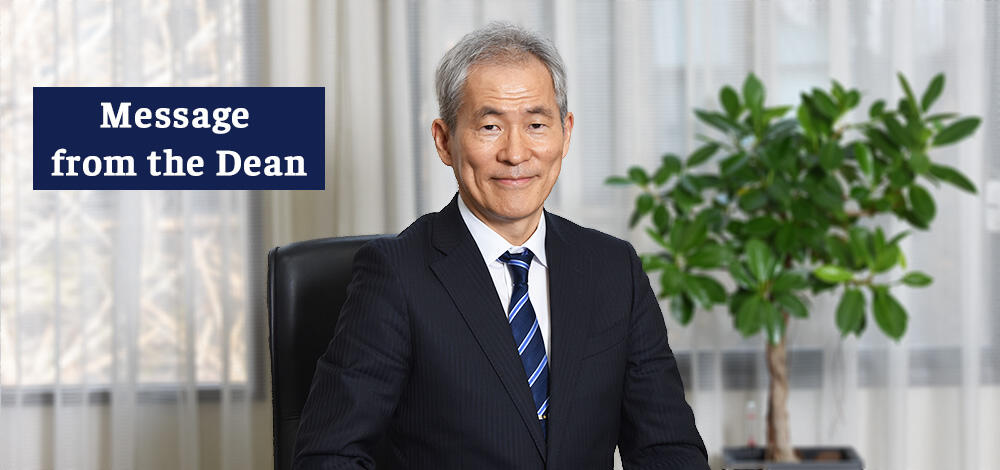 Prof. Hiroshi NAKAMURA
Prof. Hiroshi NAKAMURA
Dean of the Graduate School of Information
Science and Technology
Our world is currently undergoing immense change. The advancement of information technology is playing a central role in this transformation. Interaction and cooperation between people and between people and things are fundamental social activities. Since most of this interaction in the real world is realized by information technology, the advancement of this technology has made our society more convenient. We now live in a sea of information that is too much to process. It is the sea of not only correct information collected and processed from the real world, but also incorrect information, AI-generated information, and other information, which cannot be easily distinguished. In this sea of information, we are constantly being asked what we, as information technology professionals, should do.
Information science and engineering, which is the subject of our graduate school, is the academics of designing and realizing a better future society using information technology. The Graduate School of Information Science and Technology aims to be a place where innovations are created for this purpose.
Such a place will require creativity, including the expertise and creative thinking ability of individual researchers and students. It will also require diversity as a group, including different perspectives, thoughts, expertise, values, and cultures.
Education and research will be conducted to deepen the academic knowledge in each field, to grasp the essence of problems from a broad perspective that transcends fields and cultures, and to use cutting-edge information technology which can solve problems and be applied to society. We aim to realize a virtuous cycle in which innovation is created and human resources who can create innovation are also nurtured by linking and weaving individual creativity and group diversity.
Based on this philosophy, our graduate school has six departments (Computer Science, Mathematical Informatics, Information Physics and Computing, Information and Communication Engineering, Mechano-Informatics, and Creative Informatics), and the Social ICT Research Center, which aims to create new social systems and services.
Our graduate school also promotes cross-disciplinary research activities through our five leading collaborative research centers, which are joined by other graduate schools and institutes of the University of Tokyo. These are the Next Generation Artificial Intelligence Research Center, Mathematics and Informatics Center, Virtual Reality Educational Research Center, Security Informatics Education and Research Center, and Center for Creation of Intelligent World.
In this era of change, we believe that our graduate school has a mission from society to be a place for creating innovation in information science and technology. We invite all motivated students to join us here. We also invite everyone in industry and academia to join us through collaboration, to achieve a better future society.
April 2024
Hiroshi NAKAMURA
Dean of the Graduate School of Information Science and Technology


